Fruit and veg goes digital in South America
- Published
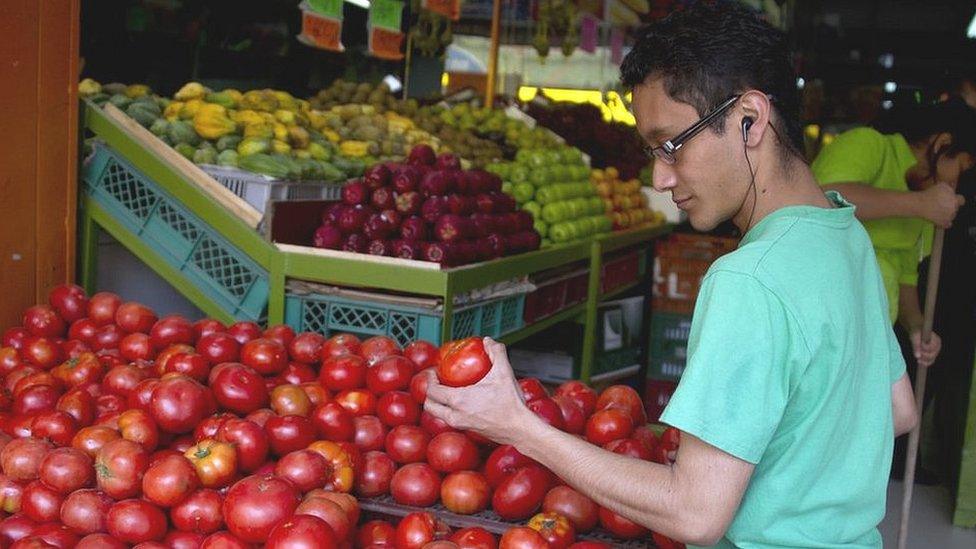
In Colombia's Bogota, most groceries are still bought from markets and small shops
A start-up founded by Colombians with no former experience in retail is aiming to shake up the way people buy groceries online.
Tech firm Grability has developed Rappi, external, a smartphone app that aims to makes shopping as easy as swiping your finger across a screen.
Instead of laboriously wading through long written lists of food items, shoppers swipe through images of supermarket shelves and touch pictorial representations of each food item they want to buy.
Grability has applied for a patent - pending in the US - for this swiping process, but it also handles the back-end platform that integrates the app with retailers' systems.
When the shopping is done and the order placed, a delivery person, which the company calls a "rappitendero", selects the items from the stores and delivers them to the customer.
Faster shopping
A senior retail industry source in Colombia, who preferred not to be named, described the app as "transformative, revolutionary" and was particularly surprised that the young entrepreneurs - Sebastian Mejia, Simon Borrero and Felipe Villamarin - are complete outsiders.
Despite this apparent lack of experience, the company is already working with major retailers, such as Cencosud in South America and El Corte Ingles in Spain.
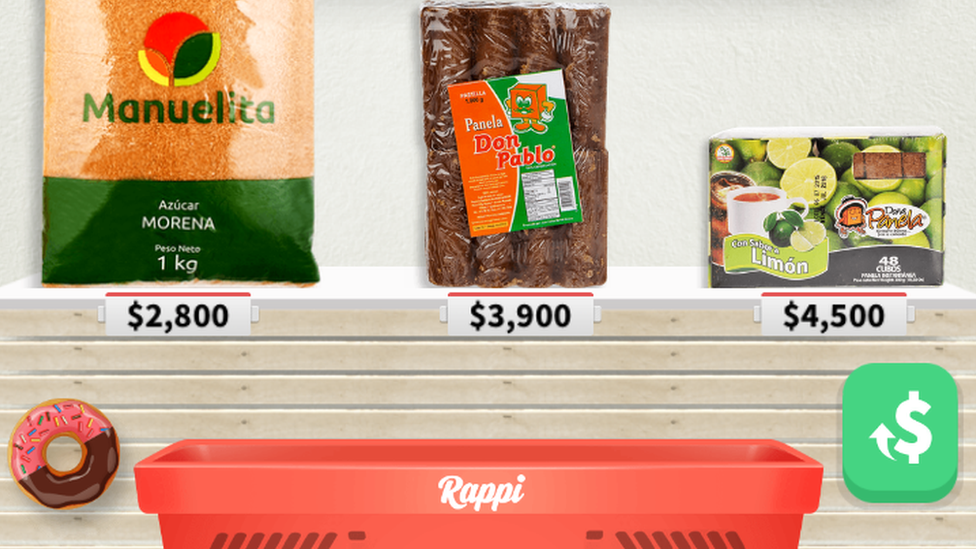
The Rappi app uses visual imagery rather than written lists to make shopping more intuitive
So what attracted a Spanish retail giant to a little Colombian tech start-up?
"The main factor was the ease of use we could offer our clients," says an El Corte Ingles spokesman. "The time to make a purchase was reduced from one hour to 20 minutes."
The app features products from many local shops, which avoids putting retailers in the uncomfortable position of looking more expensive than a competitor on a single mobile screen. The entire inventory is updated every two hours, the company says.
Uber for groceries?
But could the company, whose app is currently only available in Mexico City and Bogota, break into the US market, where there is already a huge player in online grocery deliveries, Instacart, external, currently valued at about $2bn (£1.37bn)?
Grability thinks it can as there is plenty of room for growth in the sector.
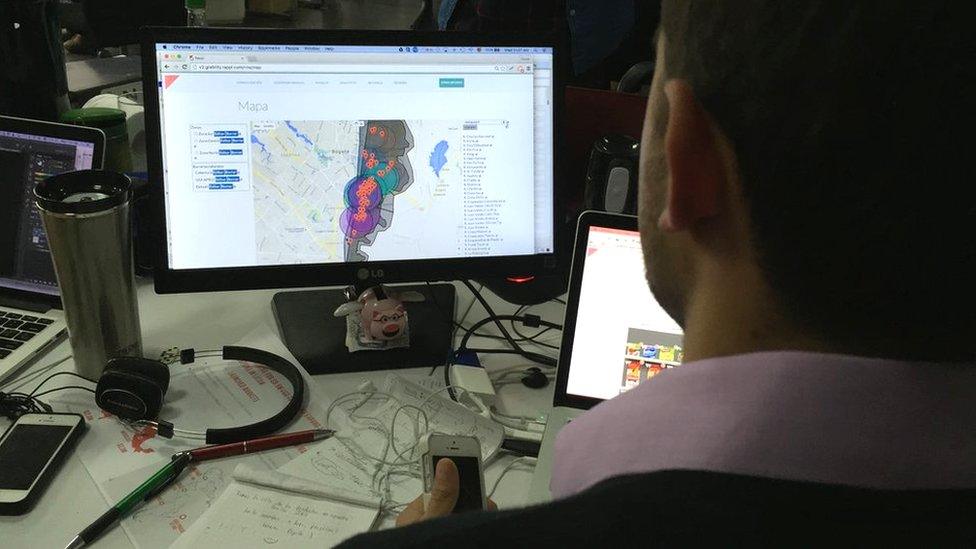
Rappi monitors the locations of all its delivery people
Around 3% of groceries are bought online in the US, whereas for other products, online accounts for about 20% to 30% of total sales, say Rappi's founders.
"Our vision is to change the way people buy all over the world," says co-founder Sebastian Mejia.
Rappi does not own shops or warehouses or manage inventories of goods, nor does it employ the rappitenderos directly - they are self-employed, earning money through delivery fees and tips.
In this sense, the company says it follows the Uber model.
Risky business
But there are risks with this approach.
For example, the rappitenderos wear Rappi-branded uniforms, so if they make mistakes with the order, Rappi takes the rap.
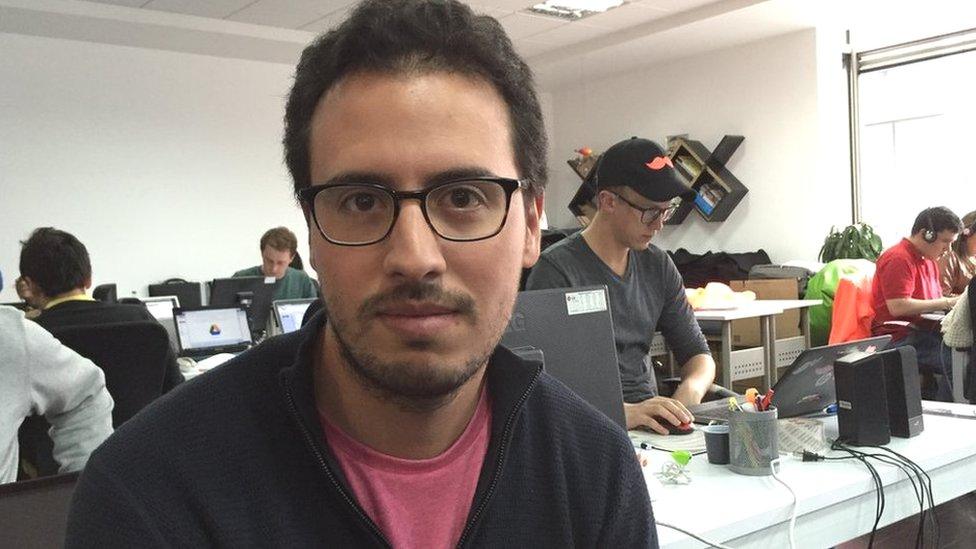
Rappi co-founder Felipe Villamarin says the app has attracted 100,000 users so far
To combat this, the firm says it provides help to the rappitenderos on complex orders and constantly monitors the operation. But it will also punish mistakes by suspending the salespeople for a number of hours, reducing their earning potential.
"We have a very strict training and background check programme," says Mr Villamarin.
The other risk - which is the same one threatening Uber - is that regulators insist rappitenderos are treated as direct employees rather than contractors, resulting in a potentially large tax liability.

But does Rappi work?
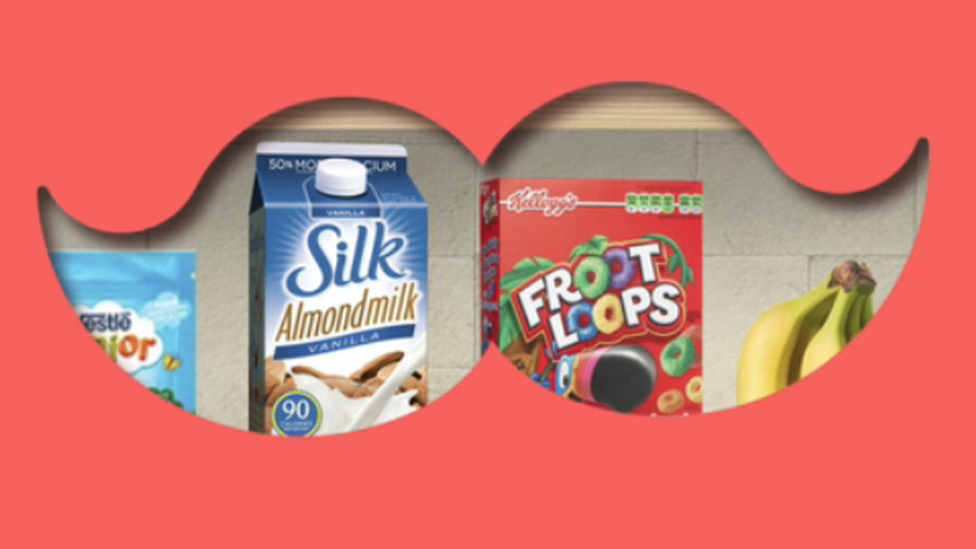
I tried Rappi's grocery shopping app a couple of times.
On the first occasion I got a call from the company saying they could not get some of the items I'd asked for - even thought they were displayed on the app - so I cancelled the order.
I got a bit luckier on my second attempt: the order did arrive, but not with the chocolate I wanted. For some reason, the rappitendero had replaced it with another brand without letting me know.
But the delivery did get to my place in less than half an hour, and if I had gone to the supermarket myself it would have taken me much longer.

Global ambitions
In Colombia's capital Bogota, about 200 rappitenderos cover 30% of the city, and the aim is to cover 60% by the end of 2016, says Mr Villamarin.
And the app has attracted about 100,000 users in less than a year, the firm says.

Colombia is probably better known for its wildlife than for its e-commerce
The plan is to expand into other cities, especially those with under-developed infrastructure, in South America, South East Asia, the Middle East and Africa.
"Rappi makes more sense in emerging markets," says Mr Mejia.
That is because the retail sector is less organised in those places, serviced mostly by small shops rather than huge supermarkets.
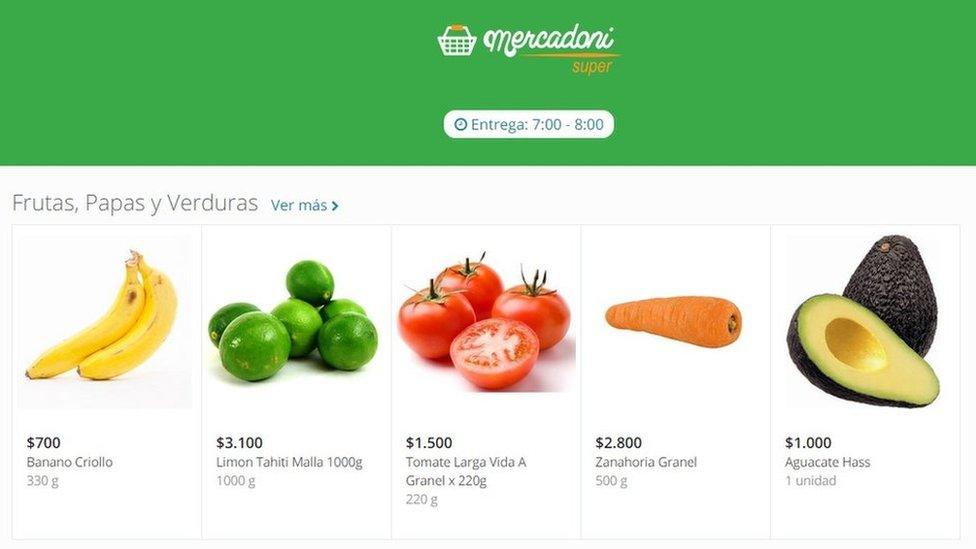
Mercadoni is trying a similar pictorial approach to online grocery shopping in Colombia
Neil Saunders, managing director of retail analyst Conlumino, says: "I can see a lot of growth potential because you are going into a market that is not yet saturated. It gives the retailers another channel through which to sell."
And Rappi isn't the only tech firm that sees potential in the online grocery buying market - Mercadoni, external, another Colombian start-up, is also adopting this pictorial approach and giving shoppers the chance to buy from a growing range of supermarkets.
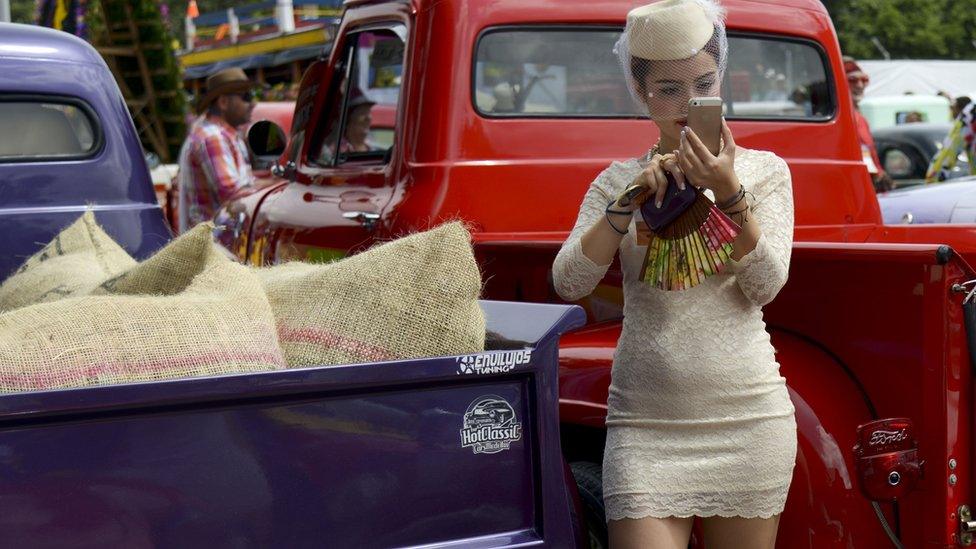
Colombia is expected to have about 19m smartphone users by the end of 2016
Another site, Worbunna, external, concentrates on Colombian coffee deliveries.
So are such apps in competition with the supermarkets? Rappi's Mr Villmarin doesn't believe so: "If we grow a lot, they earn more."
And with access to so much data from so many retailers, Rappi and others are in a strong position to sell insights on customer behaviour back to retailers. For example, Rappi is already selling premium spots on its app targeting specific types of customer.
Conlumino's Neil Saunders concludes that there's room for plenty of newcomers in such a huge market.

Follow Technology of Business editor Matthew Wall on Twitter, external.
